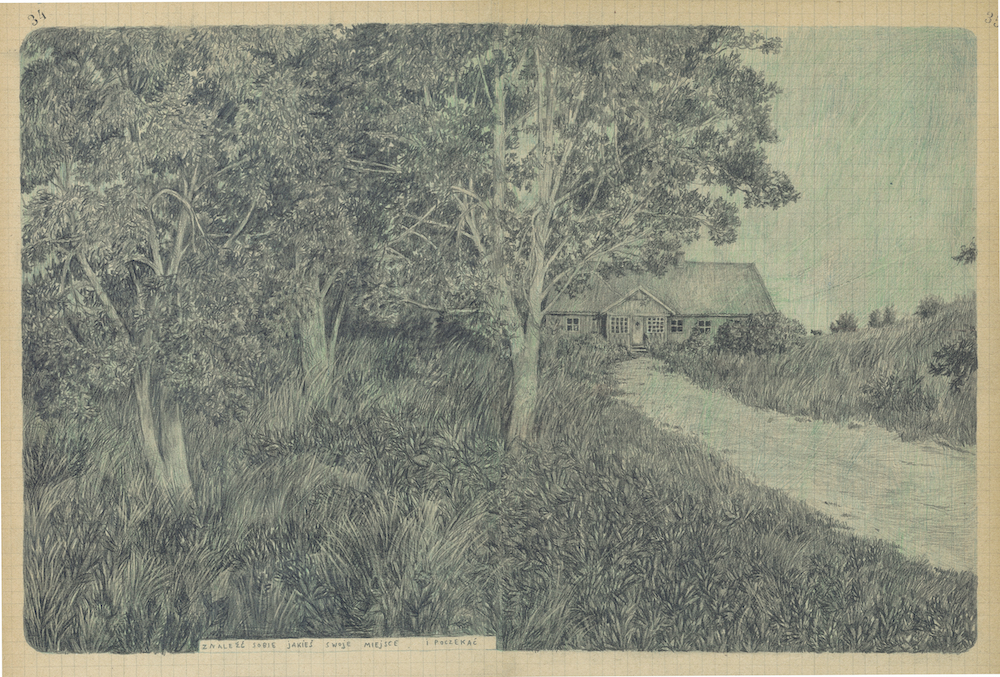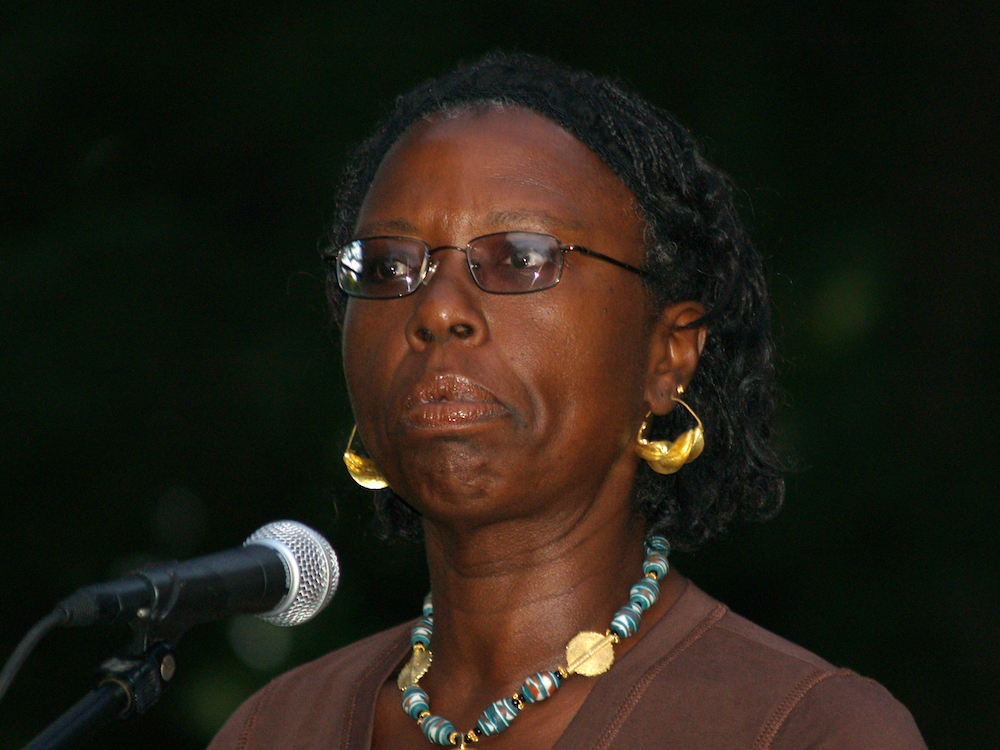There are very few children in my life right now, but if there are in the future, I look forward to sitting down with them to read Olga Tokarczuk’s beautiful and melancholy The Lost Soul. Illustrated by Joanna Concejo and translated by Antonia Lloyd-Jones, it is the brief tale of a man who, by moving too fast in life, has lost his soul. As a wise doctor explains to the man: “Souls move at a much slower speed than bodies. They were born at the dawn of time, just after the Big Bang, when the cosmos wasn’t yet in such a rush.” All is not lost: the man moves to the countryside and, as illustrated in Concejo’s delicate, wistful images, waits patiently for his soul to find him. Once this finally happens, he throws away all his watches and suitcases so as to no longer move through life too fast. When I was a child, the writing and art I liked best always disturbed me slightly and made me realize, with great surprise, that a very large and sometimes unsettling world existed outside the confines of my childhood. There is something disturbing about beauty, after all; it will, like all objects and experiences, wear away with time. The Lost Soul is a reminder to cherish the present, lest you, too, lose your soul. —Rhian Sasseen
One of my close friends recently fathered a child, so I’ve been thinking a lot about death. In fairness, my mind is never far from the subject, but the arrival of my paranephew did inspire my latest read, Will My Cat Eat My Eyeballs? Big Questions from Tiny Mortals about Death, in which Caitlin Doughty, a practicing mortician and death-positive activist, seeks to satisfy the morbid curiosity of children by answering such questions as “Can I preserve my dead body in amber like a prehistoric insect?,” “Can everybody fit in a casket? What if they’re really tall?,” and “Why don’t animals dig up all the graves?” She responds to these adorably ghoulish queries with the same honesty and insightful humor that has made me a longtime subscriber to her YouTube channel, Ask a Mortician, on which she continues the death-centric discourse for millions of viewers (check out “The Real Moby Dick Was So Much Worse”). Doughty certainly doesn’t need my endorsement; she earned her macabre pedigree with her first two books, Smoke Gets in Your Eyes: And Other Lessons from the Crematory (2014) and From Here to Eternity: Traveling the World to Find the Good Death (2017), and has fostered a hoard of devoted followers and a successful career in the funeral industry. Still, something tells me we avoid these darker notions more often than we embrace them, and I can’t be the only weirdo uncle out there who not so secretly wants to field the question, “Can we give Grandma a Viking funeral?” —Christopher Notarnicola
I am definitely a straggler to the absolute blowout of a novel that is Paul Takes the Form of a Mortal Girl, but wow, am I glad to be here. Andrea Lawlor’s book now sits comfortably in my Top Five Favorites of All Time for a myriad of reasons, chief among them the Patti Smith obsession, the details about zine production, and the well-placed rumination on the pros of cruising in bookstores. And of course, there’s our beloved title character, Paul Polydoris, a “shapeshifter” who can move among genders and morph his body on demand. Just as Paul (or Polly, depending on the day) tries on different gender expressions, the novel tries on different formal expressions, jumping from a seemingly traditional narrative to an origin myth to the history of Paul’s “big gay milestones” in footnotes to a screenplay and back again. My favorite form, though, has to be Paul’s acid-fueled, completely out-of-left-field monologue about the gender politics of covers in rock, “by which I mean alternative and punk” (of course). Even setting that particular moment aside, I love this book. I love it for its deeply referential nature, I love it for its formal play, and I love it for Paul’s wild journey of love, sex, gender, and youth. —Mira Braneck
Super Monster, the debut album from the NYC- and Chicago-based songwriter Claud, is the first release on Phoebe Bridgers’s record label Saddest Factory. It’s a largely upbeat collection of mesmerizing synth pop. Claud’s voice is sweet, smooth, effortless, childlike, and tinged with a hint of melancholy (as are most of Claud’s lovelorn lyrics) that creates meaningful tension with the catchy melodies. It’s not that this music is particularly original—it’s not. There’s a lot of eighties in here, with little flecks of stuff from the nineties and aughts. It’s just really good. If any one of these songs popped onto the radio, you’d find yourself singing along before it ended. My favorites include “Overnight” and “That’s Mr. Bitch to You.” It’s hard not to love this record. I bought it on LP (like Claud’s hair, the vinyl is blue and green), and I just keep flipping it over and over. It’s perfect music for this snowed-in February: a bit magical, a bit sad. If Claud is what the kids are listening to, then I’d like to believe this staff pick means I’m still one of the kids. —Craig Morgan Teicher
A few years ago, at a twenty-four-hour diner on Eighty-First and First, I saw a man at the table next to mine order and consume a “full flounder dinner” (whatever that meant) at around two in the morning. I suppose it’s not so shocking; diners can make you nearly anything, and they can pretty reliably do so at any time. At Bailey’s Cafe, the restaurant in the novel of the same name by Gloria Naylor, you really can order anything, but only on Saturdays and Sundays. The rest of the week, you’re at the mercy of the owner, the grizzled narrator and axis around which the world of the novel spins. In episodes vivid and poignant, Naylor moves through the stories of his regular customers, people who’ve found themselves at Bailey’s with only their bags of tragedy and misfortune. These pieces are sewn together by uncanny and strange thread. Bailey’s Cafe is near 125th Street, but it’s also at the edge of the world; go out the back door and the void is waiting. Maybe you know the feeling from sitting in a creaky booth with cold coffee and a sandwich; maybe you know it from Edward Hopper’s Nighthawks. In Naylor’s novel, things are not so lonely, but everyone you sit next to is sure to break your heart. —Lauren Kane
from The Paris Review https://ift.tt/3u9T32N



Comments
Post a Comment